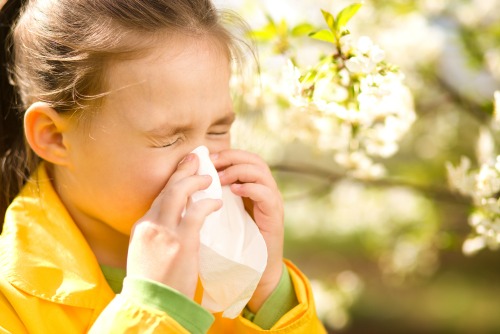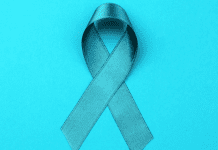Allergic rhinitis, also known as hay fever, affects millions of adults and children each year. But despite the name, it can be caused by many things other than just hay, and you don’t have to have a fever to have hay fever.
This sponsored post is written by Dr. Phil Jones on behalf of The Allergy, Asthma & Sinus Center.
Allergic rhinitis takes two different forms: seasonal and perennial. Symptoms of seasonal allergic rhinitis can occur in spring, summer and early fall. These symptoms are usually caused by allergies to airborne mold spores or to pollens from grass, trees and weeds. On the other hand, people with perennial allergic rhinitis experience symptoms year round. Generally speaking, perennial AR can be caused by dust mites, pet hair or dander, cockroaches, or mold. Some people may experience both types of rhinitis, with perennial symptoms getting worse during specific pollen seasons. Irritants, such as cigarette smoke, perfume and diesel exhaust can also exacerbate symptoms in people with hay fever.

The signs of hay fever include runny nose, itchy eyes, mouth or skin, sneezing, stuffy nose due to blockage or congestion, and fatigue. To effectively manage or treat these allergic symptoms, you will need to avoid the triggers as well as consider medications and/or immunotherapy, i.e., allergy shots.
Here are some tips for avoidance:
Keep windows closed during high pollen periods.
Use air conditioning in your home and car.
Avoid using window fans that can draw pollens and molds into the house.
Keep your air conditioning unit clean and change your filter frequently.
Use dust mite covers for bedding and wash your bedding frequently in hot water.
Don’t hang clothing outdoors to dry (pollen may cling to towels and sheets).
Use a dehumidifier to control mold.
Wash your hands after petting any animal, and keep your pet frequently groomed.
Stay indoors as much as possible when pollen counts are at their peak (usually midmorning and early evening and on windy days).
Wear a pollen mask when mowing the lawn, raking leaves or gardening, and take appropriate medication before doing any yard work.
Wear glasses or sunglasses when outdoors to keep pollen out of your eyes.
Complications of untreated allergic rhinitis include decreased concentration and focus, limited activities, irritability, trouble sleeping, fatigue, missed days of work or school, decreased productivity, and more school or work injuries.
Many allergens that trigger allergic rhinitis are airborne, so you can’t always avoid them. If your symptoms can’t be well controlled by simply avoiding the triggers, visit a board certified allergist. He or she will begin with a detailed history, looking for clues that will help pinpoint the cause of your symptoms. Your allergist may also recommend a skin test. Skin testing is the easiest, most sensitive and generally least expensive way of identifying allergens. Immunotherapy may be recommended if you don’t respond well to treatment with medications or you experience side effects from medications, you have allergen exposure that is unavoidable, or you desire a more permanent, natural solution to your allergies.

















